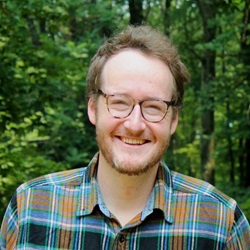
Exposed: The Archaeology of Industrial Landscapes and Slow Violence
We are living through an era defined by the environmental impact of anthropogenic waste. The twin projects of colonization and industrialization have produced waste at a massive scale, fundamentally transforming environments with devastating social impacts. This is particularly true of the North American West, an area that has been the frontier of industrialized extractive projects, driven by Euro-American settlement. These projects have re-made ecologies, introduced new species, and left behind mountains of industrial waste. As it leaches into the landscape and its ecologies, industrial waste has an impact on the livelihood and the bodies of the communities who rely upon these environments. This violence is experienced drastically uneven, yet its effects are often slow, hard to see and hard to avoid. Drawing from archaeological work on two industrial landscapes in Western North America, I show how two marginalized communities lived along-side industrial waste and were endemically exposed to its toxic harms. I argue that these communities were not only physically harmed by this waste but were forced to grapple with the uncertainties that accompanied wastes’ latent persistence.
Haeden Stewart is Assistant Professor of Anthropology at the University of Massachusetts, Amherst. His research focuses on the long-term effects of industrialization and industrial waste on marginalized communities in the North American West and uses a range of archaeological, ethnographic and environmental science methods to explore the histories of environments and people who are formed and deformed by persistent industrial processes. He is the author of the upcoming book, Revenant Waste: Mill Creek and the Toxic Legacies of the Anthropocene (2026).'
Audience
- Faculty/Staff
- Student
- Public
- Post Docs/Docs
- Graduate Students
Contact
Nancy Hickey
(847) 467-1507
Email